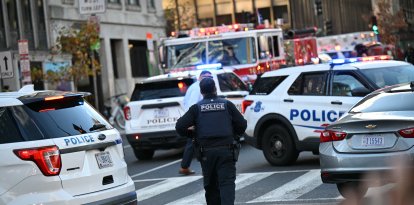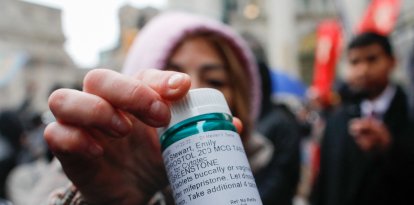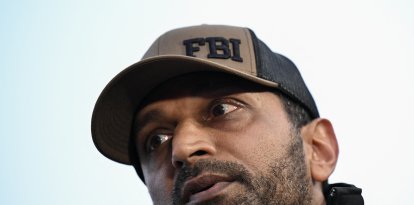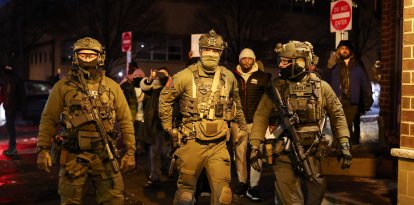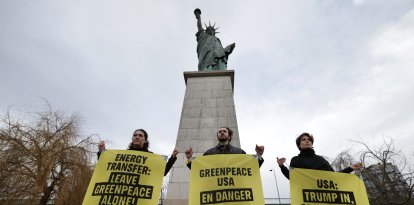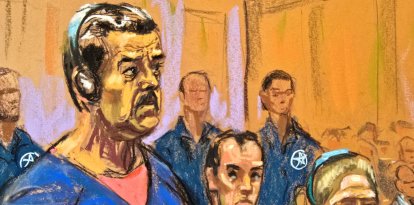The New York Times, New Yorker and Washington Post win 2024 Pulitzer Prizes
The awards, distributed in 15 journalism categories and eight arts categories, highlighted work that addressed critical issues such as the fentanyl crisis, global conflicts, and U.S. politics.

Headquarters of 'The New York Times'
On Monday, the Pulitzer Prizes recognized the best of journalism in 2024, awarding four awards to the New York Times, three to The New Yorker, and a standout award to the Washington Post for its coverage of the assassination attempt on President Donald Trump last summer.
The awards, spread across 15 journalism categories and eight arts categories, highlighted work that tackled critical issues such as the fentanyl crisis, global conflicts, and U.S. politics.
The New York Times demonstrated its versatility by winning in multiple categories. Azam Ahmed, Christina Goldbaum, and contributor Matthieu Aikins received the award for explanatory reporting for their analysis of U.S. policy failures in Afghanistan.
Declan Walsh and the Times team were recognized for their investigation of the conflict in Sudan.
In breaking news photography, Doug Mills stood out for his striking images of the Trump assassination attempt, including one that captured a bullet in mid-air near the Republican candidate.

Politics
Trump picks bodyguard who shielded him from bullets to head Secret Service
Emmanuel Alejandro Rondón
In addition, Alissa Zhu, Nick Thieme, and Jessica Gallagher, in collaboration with The Baltimore Banner, won in local journalism for their coverage of the fentanyl crisis in Baltimore, focusing on its disproportionate impact on Black men.
The Baltimore Banner, a local media outlet founded three years ago, celebrated this milestone. Its editor-in-chief, Kimi Yoshino, expressed, "This is a huge milestone for us. It is a testament to the power of local news.” The outlet developed a statistical model on the fentanyl crisis and shared it with newsrooms in Boston, Chicago, and San Francisco, which broadened the impact of its work.
The New Yorker won three awards. Mosab Abu Toha was honored for his commentary on life and suffering in Gaza, while the podcast In the Dark, led by Madeleine Baran, won in audio reporting for its investigation into the deaths of Iraqi civilians at the hands of U.S. Marines in 2005. Moises Saman received the award for reportage photography for his images of Sednaya prison in Syria.
The Washington Post was awarded for its "urgent and illuminating" coverage of the Trump assassination attempt. In addition, the Pulitzers recognized Ann Telnaes, who resigned from the Post in January following the outlet's refusal to publish her editorial cartoon satirizing tech leaders, including Post owner Jeff Bezos, for their closeness to Trump. The Pulitzers praised his "fearlessness."
The public service award, which includes a gold medal, was given to ProPublica for the second year in a row. Kavitha Surana, Lizzie Presser, Cassandra Jaramillo, and Stacy Kranitz were honored for their reporting on pregnant women who died due to delays in medical care in states with restrictive abortion laws.
Other winners included the Wall Street Journal, honored for its reporting on Elon Musk, which addressed his turn toward conservative politics and his private conversations with Vladimir Putin.
The Houston Chronicle won in editorial writing for its series on dangerous train crossings, led by Raj Mankad, Sharon Steinmann, Lisa Falkenberg, and Leah Binkovitz.
Reuters was recognized for its research on fentanyl, highlighting how lax regulation facilitates its availability.
The Associated Press was a finalist in breaking news for its coverage of the Trump assassination attempt and in investigative reporting for its collaboration with PBS's Frontline, documenting more than 1,000 deaths caused by allegedly non-lethal police methods.
inewsource.org in San Diego was also a finalist in illustrated reporting for its stories on fentanyl.
The Pulitzers also awarded a special mention to the late Chuck Stone, a pioneer of African-American journalism, for his coverage of the civil rights movement.
Mark Warren of Esquire won for writing a portrait of a pastor who committed suicide after being exposed, and Alexandra Lange of Bloomberg CityLab was awarded for her criticism of public spaces.
Prizes of $15,000 were awarded for most categories.















